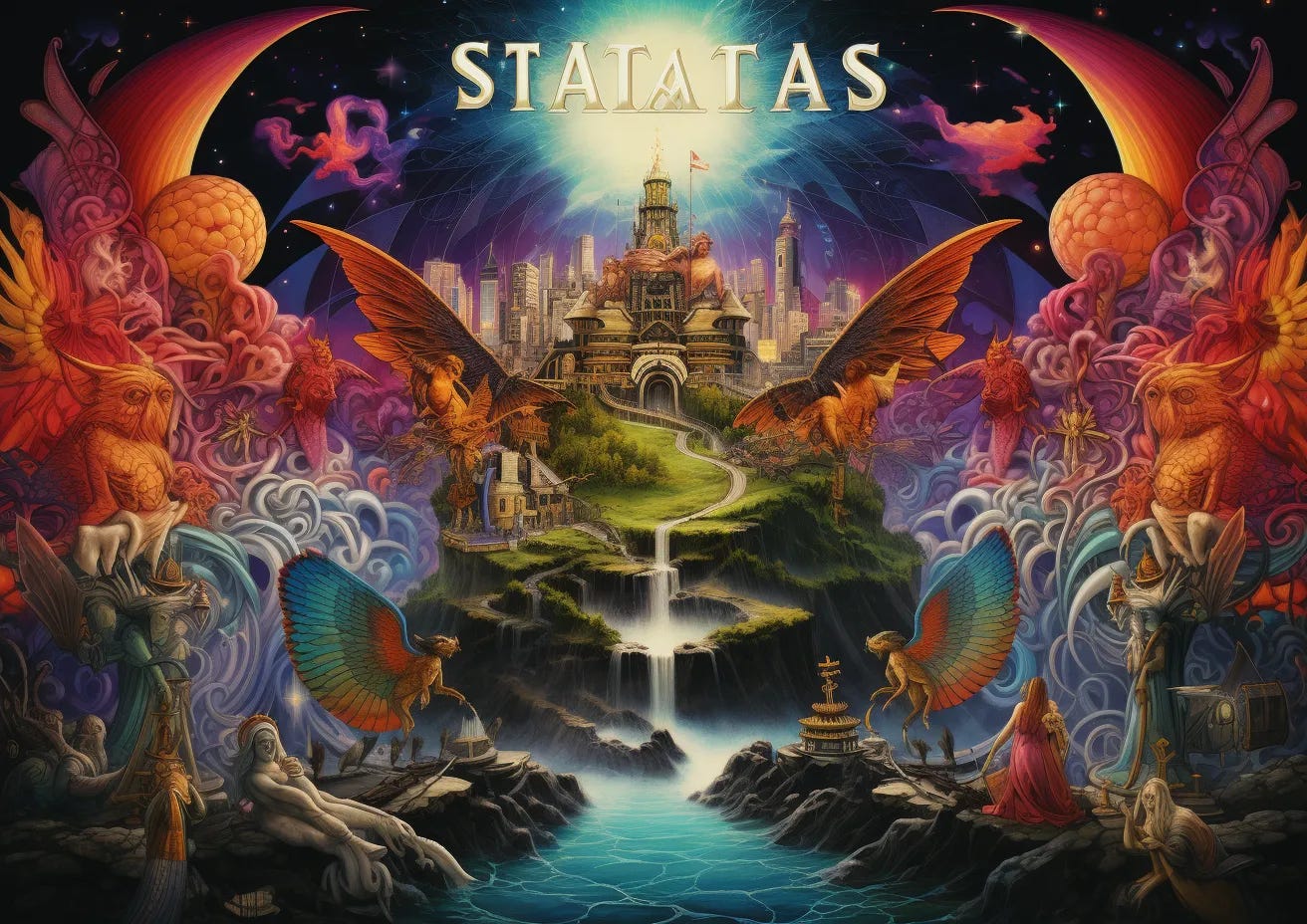You can, if you prefer, watch this article in video form here:
I was having a coffee with an Anglo-Italian friend of mine the other day, and he began telling me about his grand-parents. They were “contadini”, which translates literally as “peasants”, though the term peasant does not have such pejorative connotations in Italy as it does here. They called themselves “mezzadri” or “sharecroppers”. A landowner allowed them to work his land, in exchange for half of everything they produced on it. The other half they got to keep. Selling that half of the produce was how they got money. My friend’s family had been doing this for generations, never actually breaking above that status to become landowners themselves.
There are many parallels to the mediaeval serf, who had to work the land of his lord in exchange for his subsistence and protection. Just as the serf was the descendent of the Roman slave, so was the contadino the descendent of the serf, though contadini were not as subjugated, except by their circumstances.
It is not so different to the plight of the young western worker today, particularly at the lower end of the pay scale, who has, by the time you factor in inflation and other taxes, half of everything he earns taken from him by the state, and is unable to buy a place to live.
In any case, in 1966 Grandad left Italy and the peasant existence, followed by Grandma in 1967, and they came to work in England. With union law quite protective at the time, most Italians in the UK found themselves either setting up small businesses or working for other small businesses belonging to friends or family, especially in the catering industry. (My grandad, who was also Italian, ran a sandwich shop in Victoria). They were paid in British pounds, and largely in cash, on which they are unlikely to have paid much Income Tax.
While the British pound was not exactly a beacon of fiscal rectitude, it was a lot better than the Italian lira, which suffered numerous devaluations and became something of a laughing stock currency. This meant that the money Grandad and Grandma were paid in kept its value, at least on a relative basis.
Several years passed. My friends’ grandparents worked hard and saved. Then in 1970 they went back to Italy and bought themselves an apartment. It may only have been an apartment, but for the first time in the family’s history they owned property. They carried on working in the UK and by 1976 they were able to buy some of the land on which they had previously been contadini. Their social status had changed - from peasant to landowner.
It was a common thing among Italian emigrants throughout the 20th century. When they went back home, they had so much more money than those who had stayed.
They hadn’t had particularly good jobs in England. They were waiters. They were only able to do what they did for two reasons: one, the money they were paid in and saved in was so much stronger than the Italian lira; two, operating in the cash economy and receiving much of their income in tips, which were not taxed back then, they did not have 50% of the produce of their labour confiscated, whether by landowner, lord or state.
There is an important message to this story, both about how society works and about how you should position yourself.
The unspoken crime of the 20th and 21st centuries
Actually, there are many crimes, let’s just say this is a big one. Not only are workers fleeced by the amount of tax that they have to pay (most of which is then wasted on government incompetence or worse), they are fleeced because the money they are paid loses its value.
Owning property has been one of the few ways by which ordinary people have been able to protect themselves against the extraordinary currency debasement of the 20th and 21st century. As I constantly argue, property prices are a functon of money supply, and property is unaffordbale as a result of relentless money supply growth. So much newly created money goes into property, that houses have become financial assets, an effective hedge against currency debasement. As house prices have gone up, it feels like wealth has been created, but it is just an illusion. All that has happened is that property owners have been had that part of their portfolio shielded from the debasement.
Storing your wealth in property proved a much better place to keep it than cash, be it sterling, lira, euro or dollar. Plus your main home goes untaxed, so you don’t get fleeced that way either.
My Italian friend described his confirmation some 35 years ago. One family member gave him a gold sovereign. Another gave him twenty newly minted pound coins, which my friend still has in the original packaging. Which has kept its value? Those pound coins might have some collectors’ interest, but £20 buys you a heck of a lot less now than it did 30 years ago. The sovereign meanwhile has kept its purchasing power, as gold always does.
When you work, you expend energy. The money you are paid for your expended effort is in effect stored energy to be used at some later stage. It is essential to an honest and functioning society that that expended energy keeps its potential. But it doesn’t.
What can we do? We can’t change the system.
But we can change ourselves.
Consider all the work that you have done over the years. Imagine if you had converted what you were paid for it straight away from fiat into strong currency - be it gold or house. The value of your labour would have been preserved too, instead of eroded. With the cumulative savings, you’d be able to turn around today and buy things that were previously out of your reach, just as my friend’s grand-parents did.
Now imagine that for all the work you’ve done over the last 10 or 15 years you had been paid in bitcoin. Or, on being paid in fiat, you had immediately converted the money into bitcoin. You would be extraordinarily wealthy now, so wealthy your entire social status would have changed. There are many who have done that. They converted their salary into bitcoin as soon as they were paid. Because they saved in a strong currency, they are now able not to work at all, if they don’t want to. They could probably buy the company they worked for. They can buy houses in a market that is otherwise affordable.
There is a whole movement of people who are doing just that now. They will transform their lives as a result.
Weak money weakens you
You will not change your life or your status, if you keep your wealth in crap currency. Crap currency keeps you down. It makes you weak. Crap currency is a way of keeping people down. Many will think this is deliberate, a tool of suppression. It certainly used to be. Serfs were not allowed to handle gold or silver specie, once upon a time. Fiat has a similar effect, though by the back door.
There are some economists who argue that it is good to have a weak currency. A weak currency attracts investment they say, especially from overseas. It might well attract investment, because people with stronger currencies can buy you and your country, you and your country’s labour and assets on the cheap. Why do you think so much of the UK is now foreign owned?
Europe and the UK both look so cheap to Americans at the moment, because of the relative currency strength. I have American friends who tell me they thought London was supposed to be expensive. It is if you live here and you are paid in pounds, but if you have a strong currency it isn’t.
A weak currency makes you weak. A weak currency makes your country weak.
Switzerland has maintained the strength of its franc. Ordinary Swiss people have status, as result - a status that is above the status of someone from somewhere with joke money. There is a hierarchy among nations. It comes with the currency. With a weak a currency you lose status globally, you fall down the global hierarchy. Imagine being an Argentine or a Venezuelan or a Turk. Argentina was once one of the richest countries in the world. Venezuela was extraordinarily wealthy in the 1980s. The Turks were once the Ottomans. Now they are all low status. Italy used to be the richest country in the world, as did Britain later on. With the serial devaluation of its lira, it became a laughing stock. The UK has become a weak nation, a nation in decline. Our money is weak.
One of the first jobs of government should be to protect the value of the currency, because then you are protecting the value of your citizens’ labour. By defending your currency, you are defending your people. You are empowering them. But when your currency is weak, you weaken your people. Inflation is not just theft, it is debilitating. It is stealing from your people, weakening them, devaluing them, and taking away their power.
The take-away from of all of this: save in strong currencies. You might live in a country with a weak currency. Not all of us cannot up sticks and go and live in Switzerland or El Salvador. But you can still convert your weak currency into strong, be it gold or bitcoin.
Save in strong currencies. Over time it will change your life. And your social status.
My friend, meanwhile, finds himself unable to buy a property in the UK. He has recently taken a leaf out of his grand-parents’ book, and emigrated, at least digitally: he’s putting everything he earns into bitcoin. Let’s see how he gets on.
If you are considering buying gold, my recommended bullion dealer is The Pure Gold Company, whether you are taking delivery or storing online. Premiums are low, quality of service is high. They deliver to the UK, US, Canada and Europe, or you can store your gold with them. I have an affiliation deal. More here.
Here is my latest piece on bitcoin, and my guide.
If you are looking for Chrissie pressies and stocking fillers, then here is your place.














